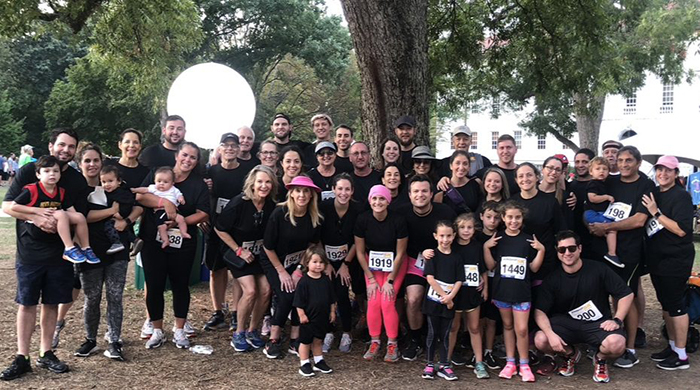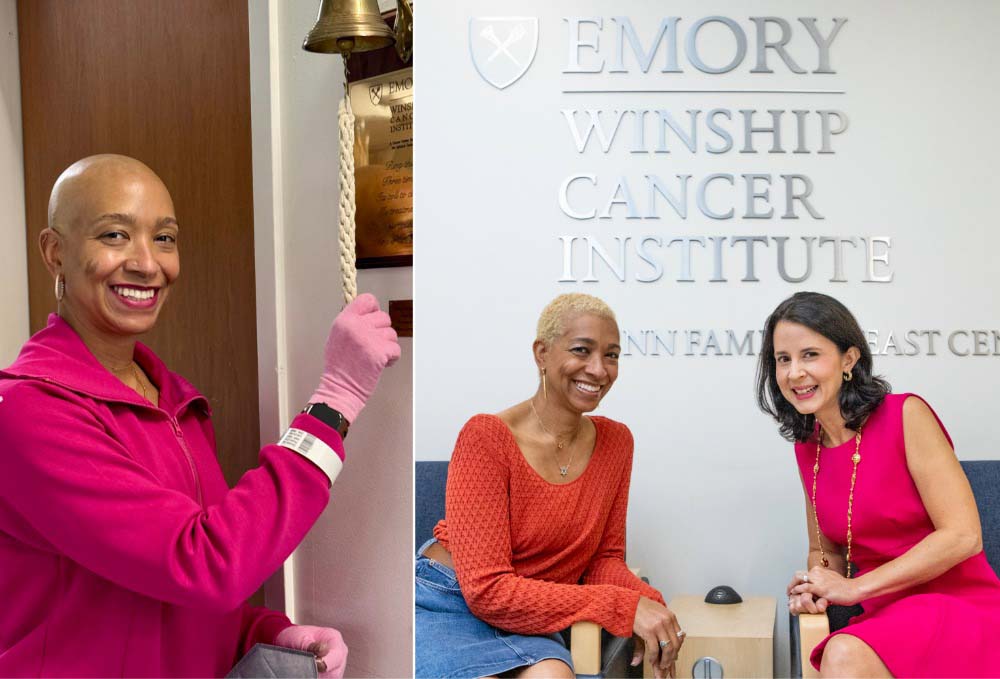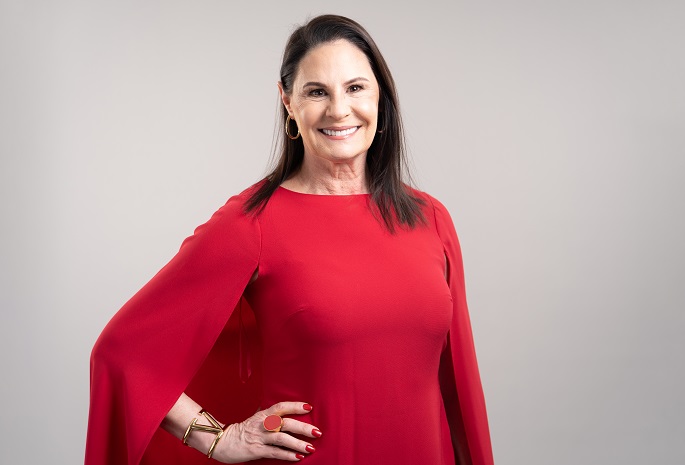Alexandra says her doctors told her that if she wanted to expand her family right away, she should consider exploring alternative methods. That’s because she would need to have her ovarian function suppressed and be on anti-estrogen pills for 5-10 years to make sure her cancer did not return.
Although she could still carry a child naturally, stopping treatment to achieve and complete a pregnancy could have put her at higher risk for a relapse.
What would all this mean for Alexandra’s hope of having more children now, as she wished to space her children close together in age? The short answer is: everything.
 “That,” she says, “is when my surrogacy journey began.” Alexandra recalls thinking, “I don’t want to stop our family planning, so what do we need to do to make this still happen soon?” At that point, she says she felt “so grateful” that her doctors had encouraged her to freeze her eggs.
“That,” she says, “is when my surrogacy journey began.” Alexandra recalls thinking, “I don’t want to stop our family planning, so what do we need to do to make this still happen soon?” At that point, she says she felt “so grateful” that her doctors had encouraged her to freeze her eggs.
Egg freezing—technically known as oocyte cryopreservation—involves removing eggs from the ovary, freezing and then storing them so they can be thawed and fertilized at a later date. The procedure offers women the option to conceive even if they aren’t naturally able to do so.
For young patients with cancer who may not have completed their families by the time of their diagnosis, it is important that their oncologists refer them to reproductive endocrinology doctors who can counsel them on the possible risk of infertility with cancer treatment, and help them take steps to preserve their fertility, if desired. Emory Reproductive Center offers a full range of endocrine and reproductive health-related services.
Alexandra is grateful that her doctors were forward-thinking and advocated for her. She says that meant her fertility planning was a natural part of her overall treatment plan. “They told me to do it,” she says. “I did it. They told me to get chemo, I did my chemo. And I’m so grateful that I did.”
Giving Back
Alexandra says that when she was diagnosed with cancer, people asked her how she planned to “give back.” She found it a strange question. “My response,” she says, “was always, ‘I don’t know. I’m going to live. That’s what I’m going to do.’” But the questions persisted. “I probably had 20 or 30 people ask me that,” she says. “Friends, family, even acquaintances would ask me that, and every single time it would catch me off-guard.”
After looking for resources available to support people with the surrogacy process, Alexandra realized how little there is. “That’s when I had an epiphany,” she says. “I knew what I would do to give back. I wanted to help people who have medical issues with the journey toward surrogacy.”
At first, she just wanted to raise money, hand it to someone and wish them the best in going ahead and having a family. She says she quickly realized that to make a “substantial impact on someone’s life” she needed to form a 501(c)(3) nonprofit organization. So she and her husband, Zach, formed a surrogacy foundation. She points out that surrogacy can cost up to $100,000. “And,” she says, “if someone’s dealing with medical debt, how are they going to start raising $100,000? We’re the first organization out there to cover the full cost of surrogacy for someone.”
At this point, Alexandra understands what it means to give back—and why donors are so essential in helping to make dreams come true—whether it’s having a child or advancing cancer care. “Philanthropy,” she says, “when it comes to Winship, is so important because not only are you bettering the patient experience, but you’re bettering the research and the trial drugs, and helping Emory and Winship make progress against cancer.”

One way Alexandra and her “very supportive and extensive and large family” have given back to Winship is by rallying together, having shirts made and participating together in the Winship 5K Walk/Run. Alexandra says the reason they do the Winship 5K is simple: “We want to see Winship remain the go-to cancer treatment center for our community.”
 Alexandra was diagnosed with stage 3 breast cancer in July 2019 at an Atlanta-area breast care center. Once she learned of her diagnosis, her neighbor, an Emory University employee, recommended she meet with Jane Meisel, MD, a medical oncologist at Winship Cancer Institute of Emory University and associate professor in the Department of Hematology and Medical Oncology at Emory University School of Medicine.
Alexandra was diagnosed with stage 3 breast cancer in July 2019 at an Atlanta-area breast care center. Once she learned of her diagnosis, her neighbor, an Emory University employee, recommended she meet with Jane Meisel, MD, a medical oncologist at Winship Cancer Institute of Emory University and associate professor in the Department of Hematology and Medical Oncology at Emory University School of Medicine.

 “That,” she says, “is when my surrogacy journey began.” Alexandra recalls thinking, “I don’t want to stop our family planning, so what do we need to do to make this still happen soon?” At that point, she says she felt “so grateful” that her doctors had encouraged her to freeze her eggs.
“That,” she says, “is when my surrogacy journey began.” Alexandra recalls thinking, “I don’t want to stop our family planning, so what do we need to do to make this still happen soon?” At that point, she says she felt “so grateful” that her doctors had encouraged her to freeze her eggs.


